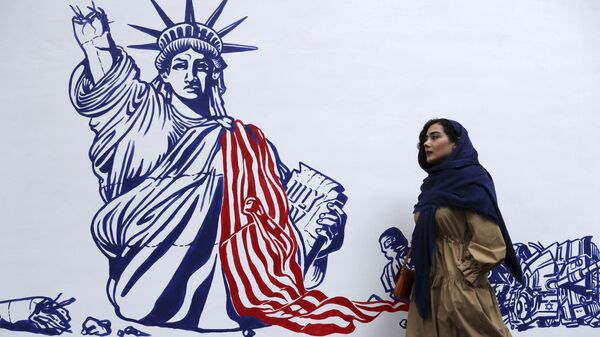"Washington will never achieve its illegitimate objective", Khatibzadeh said, calling the US request baseless and illegal.
Noting that all the nuclear deal’s participants rejected the possibility of the United States launching the mechanism, the diplomat expressed confidence that the rest of the UN Security Council members would take a similar position.
According to Khatibzadeh, Washington "has become so isolated, even among its allies, that it has called the three European states (UK, France and Germany) the allies of Iran’s ayatollahs."
Snapback Mechanism
On Thursday, US Secretary of State Mike Pompeo sent a letter to the UN Security Council requesting that it invoke the 2015 nuclear agreement snapback mechanism under Resolution 2231, citing Iran's non-compliance with the accord. Iranian Foreign Minister Mohammad Javad Zarif, in turn, sent a letter to the UNSC calling on the members to prevent the United States from attempting to reimpose UN sanctions against Iran because it is no longer a participant in the 2015 nuclear agreement.
Washington has announced plans to trigger the snapback mechanism to reimpose all the UN sanctions against Iran — previously lifted under the Joint Comprehensive Plan of Action (JCPOA) — after failing to get the UN Security Council to pass a resolution aiming to indefinitely extend the arms UN embargo on Iran. The arms embargo is set to expire in October under the terms of the nuclear agreement. Zarif has said that Washington’s move to trigger snapback sanctions linked to the JCPOA was "illegal."
The JCPOA was signed in 2015 by Iran, China, France, Germany, Russia, the United Kingdom, the United States and the European Union, stipulating the removal of international sanctions from Tehran in exchange for it scaling down its nuclear program. The deal was then enshrined in UNSC Resolution 2231, including a provision on a five-year arms embargo.
The United States unilaterally abandoned the agreement in May of 2018.




